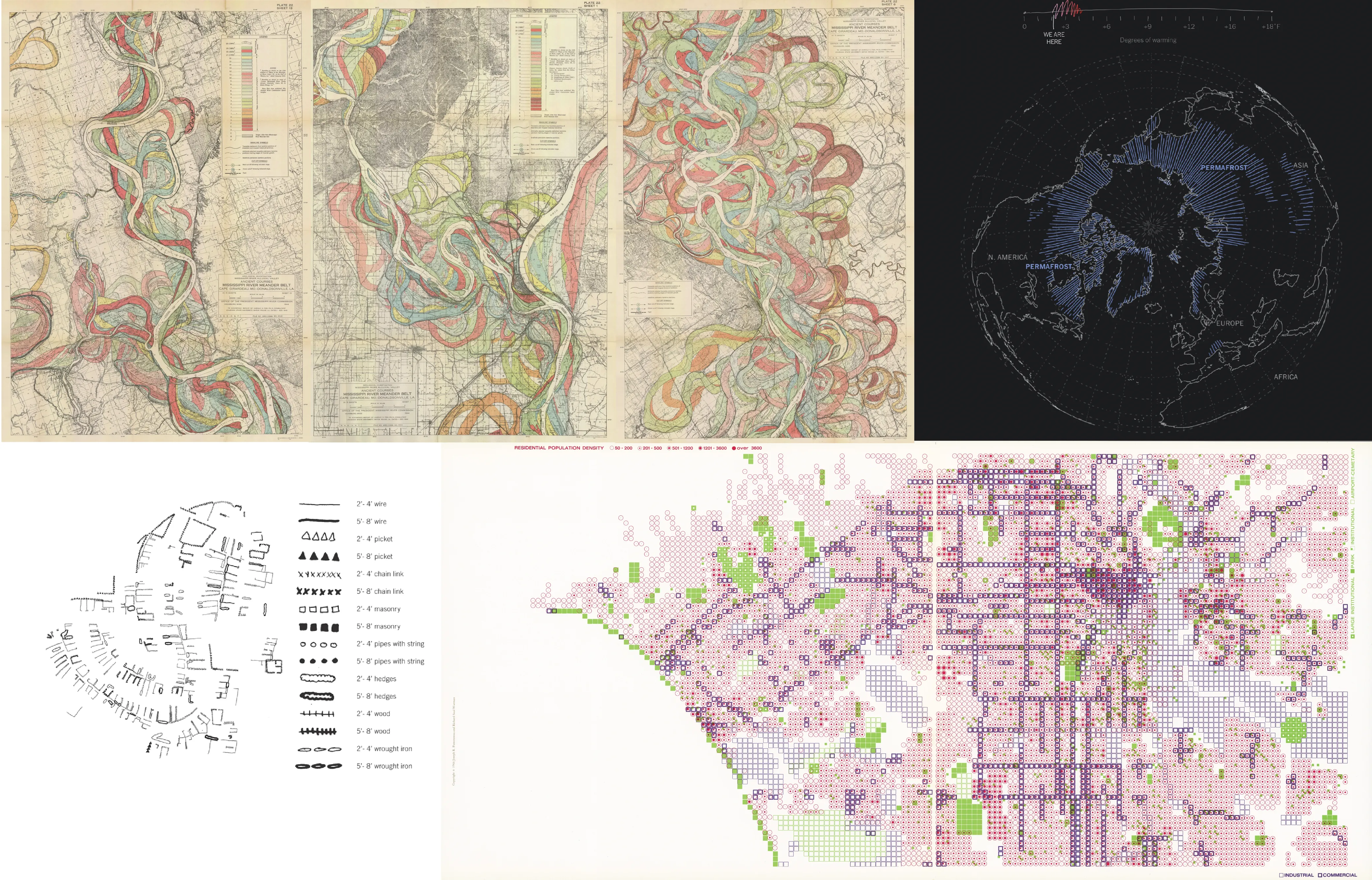Final Project: Narrative Atlas

For your final project you will develop a narrative atlas over the course of the semester.
You will develop materials to be included in your atlas through skills-building tutorials and four short assignments due weekly or bi-weekly through the semester. In the final third of the semester you will curate, edit, revise, and hone these materials into a coherent atlas powered by a clear narrative.
Your atlas should depict either a single place, or a single theme and should accomplish one or more of the following:
- describe aspects of a place in detail
- have a clear argument and narrative arc
You should consider whether you will depict a place at a specific moment time or represent change over a set time period. As well as whether your atlas will use one spatial scale or will change scales to tell a specific story. The topic you choose should be clearly defined and should be spatial in nature.
Your atlas may take either the form of a website or a series of static maps composed as a PDF and will be published online at the conclusion of the semester. Your work may incorporate static or interactive maps or both. For those with limited web development experience interested in developing a website, a framework website template will be provided. Your full project proposal (due 10/24) must outline the format you propose your project will take and make an argument for why this format supports the narrative you seek to convey with your atlas.
This is an individual assignment but petitions to work in pairs may be accepted on a case by case basis.
Project schedule
You will complete the final project in four stages:
- Initial topic and context proposal, due 9/26
- You initial topic proposal is due at the start of our 4th class session and must specify:
- your topic and/or research question,
- the location you plan to focus your work,
- at least one dataset that you have identified and hope to use in your project
- You initial topic proposal is due at the start of our 4th class session and must specify:
- Full proposal, due 10/24
- Your full proposal will be further developed version of your initial topic proposal and will incorporate feedback from the instructors that you recieved on the initial proposal. The full proposal must include:
- a clear and concise project description including core research question and/or subject of your narrative atlas
- a list of outstanding questions you have about your topic and how you will address it
- 2-3 precedent projects and images
- a list of all datasets you plan to use in your project and thumbnail images/maps of those datasets (i.e. you need to have looked at them and investigated whether they have the fields and information that you will need to accomplish your project)
- a proposal for the format of your atlas that articulates how it supports your overall narrative
- Your full proposal will be further developed version of your initial topic proposal and will incorporate feedback from the instructors that you recieved on the initial proposal. The full proposal must include:
- Draft atlas, due 11/14
- Our class session on 11/14 will be devoted to desk crits of your work-in-progress atlases. You must have a work in progress draft of your project completed for this class session in order to workshop it with the instructors and with your peers.
- Final presentation 11/21
- During our last class session on 11/21 we will have a final review with invited guest critics where you will present your completed atlas on the class website.
Image notes
Clockwise from left:
- Harold N. Fisk, Geological Investigation of the Alluvial Valley of the Lower Mississippi River, Mississippi River Commission, 1944.
- Raymond Zhong and Mira Rojanasakul, “How Close Are the Planet’s Climate Tipping Points?” New York Times, August 11, 2024.
- Richard Saul Wurman and Joseph R. Passonneau, “Los Angeles” in Urban Atlas: 20 American Cities, Cambridge: MIT Press, 1966.
- Dennis Wood, Everything Sings: Maps for a Narrative Atlas; Denis Wood and Ira Glass, Everything Sings: Maps for a Narrative Atlas, Los Angeles, CA: Siglio, 2010.